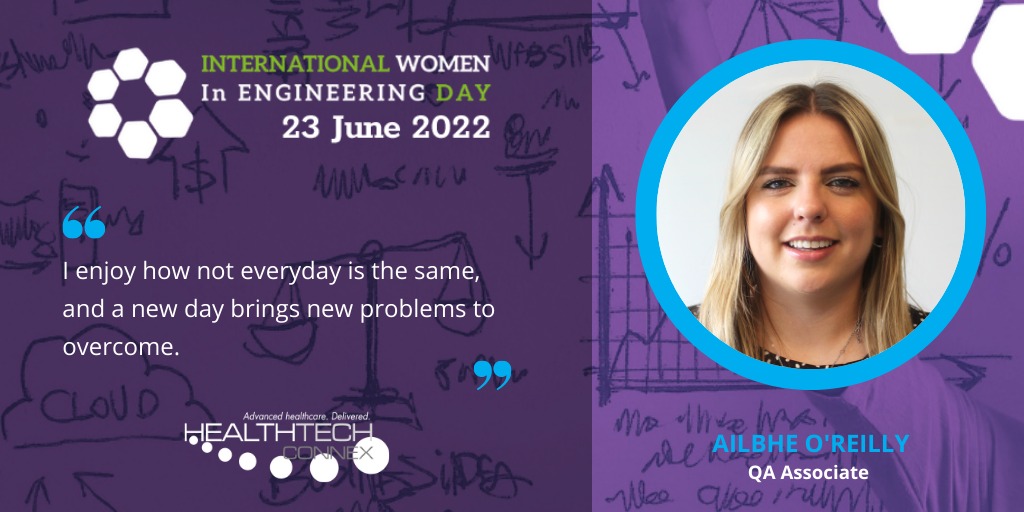International Women in Engineering Day is June 23, 2022!
At HealthTech Connex, we are celebrating our amazing women in engineering in our team who have been instrumental in driving innovation in brain health technology. From software engineering, quality assurance, research, to data analysis, they have played a vital role in driving our purpose forward – to transform ground‐breaking research & development into solutions that can positively impact brain health around the world.
This is the story of Ailbhe O’Reilly, our QA Associate.
My name is Ailbhe O’Reilly, I am 26-year-old woman from Dublin, Ireland. I received a Bachelor’s and Master’s degree in Biomedical Engineering from Trinity College, Dublin. I worked as a Research Assistant in St. James’s Hospital during my time in college. After college I moved to Galway, Ireland and worked with Medtronic as an Intern and then a Quality Associate. After over two years of working with Medtronic, I decided to make a bold move and emigrate to Canada at the beginning of March this year. I then started working with HealthTech Connex in April of this year as a Quality Associate for the NeuroCatch team.
Why did you choose engineering as a profession?
I chose engineering as a profession as I always had an interest in science and mathematics. I have a curious mind and I like understanding how things work, so engineering seemed like a good choice. My father is a Structural Engineer so that also helped in my decision as I aspire to be like him.
Considering your experience so far, what do you love most about engineering?
I enjoy the problem-solving aspect of engineering and how you work as a team to find a practical solution. I enjoy how not everyday is the same, and with a new day brings new problems to overcome. I enjoy knowing that I have impacted someone’s life in a good way as a biomedical engineer.
What are some of the challenges you have faced as a woman in engineering?
I feel there is a minority of women in engineering. Within my engineering university class of approximately 200 people, there were 30 women which is a small population of engineers. However, compared to when Trinity College, Dublin was first opened where women were not allowed to attend the college let alone study engineering, we have improved. Overall, my experiences as a female engineer have been positive and I have not been scrutinised due to my gender.
What advice will you give women who are interested in pursuing engineering as a profession?
I would say go for it!! I feel my engineering degree is very valuable as I have worked in a variety of work settings from a hospital to industry. Now, I am working with HealthTech Connex over 7,000 km from where I received my degree. Engineering can bring you on an amazing path of having the ability to travel, meet terrific people and impact lives in a good way.

